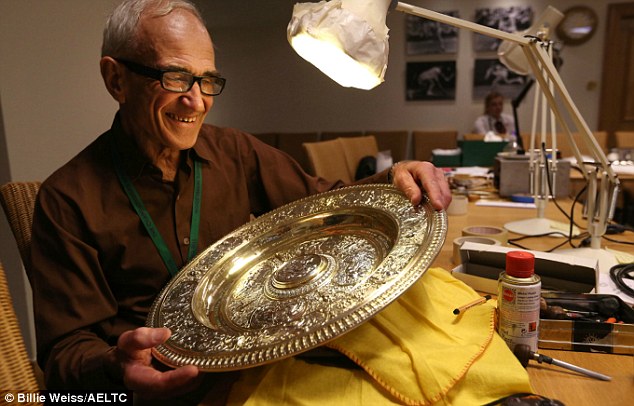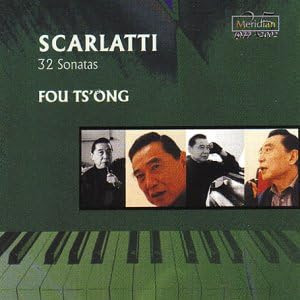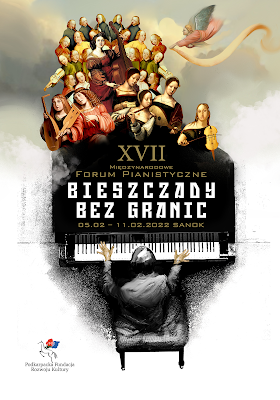Fou Ts'ong - a tender and affectionate personal reminiscence by Roman Żółtowski who also tragically left us on 15th November 2023
This beautifully and tenderly observed portrait of the pianist Fou Ts'Ong is all the more moving as Roman Żółtowski has now tragically also left us on
 |
| The Żółtowski home in Poland |
Fou Ts'ong - a personal reminiscence by Roman Żółtowski
First of all a few words about my friend Roman
"After Russia invaded Poland in 1939, my family, like thousands of our compatriots, was sent to Siberia. My father was almost certainly shot by the NKVD (later KGB) while in prison; my mother, brother, sister and I remained in Siberia for three years before getting out with General Władysław Anders and the Polish army. We settled in Jerusalem for four years but then the war between Jews and Arabs started and Poles were advised to leave. And that we did, arriving in Liverpool towards the end of 1947."
Roman trained as a Mechanical Engineer specializing in diesel engines. By a remarkable series of coincidences he also later, over many years, taught himself the demanding art of seal engraver of stone-set signet rings and the art of engraving itself.
He continues:
"It was while I was living in Wimbledon and working freelance for Halfhide jewellers, who supply the silverware, that I started engraving the tennis trophies for the annual tennis championships. Most people’s years run from January to December but, ever since 1979, mine have revolved around Wimbledon. The middle weekend of the world’s most famous tennis tournament is the signal for me to start packing up my red, open-top classic MGA Coupé ready for the 850-mile journey from home, near Poznań, to set up a work bench behind Centre Court, where I will engrave all the trophies straight after every presentation. An older man driving from Poland in his 60-year-old classic English sports car to do the Wimbledon engraving – it’s quite surreal, isn’t it?
I sit in a room under the Royal Box and receive the trophies immediately after they’ve been presented, sweaty fingerprints and all. There are 48 trophies in total and engraving each name, letter by letter, for posterity is a special moment."
When, in 1989, the Russians left Poland, my brother, sister and I decided to recover our old family home in Poland at Wargowo near Poznań. My brother and sister have since died, and I live here now with my wife and son.'
He then reminisced about Fou Ts'ong
"In 1977/80 I was organizing recitals for my future wife, Aleksandra Kłaczyńska. She was a young Polish pianist from Kraków who had been granted a scholarship to study with Louis Kentner. After a number of recitals in various concert halls in London, including the Wigmore Hall, I managed to hire the Purcell Room for a further recital in 1980.
The last item on her programme was to be Chopin's B flat minor sonata Op.35. By that time she was no longer Kentner's pupil and she needed some guidance in the interpretation of this emotionally complex work. Rather naively, I decided to telephone Fou Ts'ong and ask him to assist in the preparation of the sonata with her. Full of foreboding I took my courage in both hands and posed the question. At first, he seemed reticent but mellowed after I told him that the pupil was Polish and came from Kraków. ‘But I am very expensive, you know.’ I replied that that would not be a problem.
So for the next two months or so, I drove Aleksandra from Wimbledon to his house in North London. The lessons were to last one hour but these soon became two and then three hours. Ts'ong's teaching was extremely intensive and even manic at times. Sometimes he would quote poetry, and I particularly remember his use of Shakespeare to illustrate his dissatisfaction, with one particularly appropriate passage:
‘Your playing is 'full of sound and fury, signifying nothing!’
Fou T'song's playing was often full of sound and fury but always full of meaning. The last two pages of Chopin's 4th Ballade in F minor Op.52, the coda, is a particular example (even including grunts).
For the first lesson, I waited in the car to take Aleksandra home. But very soon Patsy, Fou’s wife, asked me in and it was the charming beginning of a long friendship that continues to this day. It also began my friendship with their nine year old son and with Ts'ong himself.
But my relationship with Ts'ong became much closer after he asked me to record the Scarlatti sonatas. I was terrible flattered by this request. I had some experience, equipment and musical knowledge, recording unknown Verdi operas and other musical material difficult of commercial access. I had to find the venue, hire suitable recording equipment and sometimes drive him home after eight hours of recording.
It was during these night-time recording sessions that Ts'ong revealed himself as an obsessive perfectionist who would repeat a passage countless times until it was perfect, not only technically, but also conceptually. His extraordinary imagination was responsible for endless explorations of 'another way' or vision of the work and was possibly the reason why some recording engineers found it hard not to become irritated.
The recording then had to be edited. He did a 'rough cast' in my attic room in Wimbledon, again for much of the night and then, exhausted, collapsed in a spare bedroom in my house. Patsy would then arrive and take him home. And why did she or I have to drive him all over the place? It was because Ts'ong never learnt to drive! The final editing, by the way, was done in a studio in Soho.
The technically and musically superb recording is still available to purchase.
This is all the more moving as Roman tragically also left us on
November 15th 2023
Ts'ong was a very kind man, highly civilized, but completely incapable of looking after himself. Patsy displayed enormous devotion and without her, Ts'ong might not have achieved as much as he had. She neglected her own career as a gifted pianist (she won a Gold Medal at the Royal Academy),and confined herself to teaching, finally achieving professorship at the RAM.
He could also be prickly and had a short temper. I was at the receiving end of one of his tantrums after he discovered that one of the 'ambience' microphones had switched itself off and I was forced to wait for the next 'take' before I could put it right. He telephoned me in a very agitated state ‘But it was the best take!’
On one of my visits to his large Victorian house, I mounted the many stairs to his music room on the top floor and saw him arranging flowers in a large vase. I did not announce my presence but stood in the doorway watching him make numerous minor adjustments to the arrangement, stepping back and then adjusting further. It reminded me of an art gallery visitor and also of our recording session.
Ts'ong was glued to the television screen during the Wimbledon fortnight. I took him to the Men's Final one year and noticed that he was carrying a small but enormously thick book in Chinese. It was a book of poetry which he read during the change-overs.
Another passion was snooker on television; he spent endless hours watching it. His more intellectual pursuit was Bridge, which he played often in the company of the great Romanian pianist Radu Lupu, a close friend of his. Of course he knew most of the great pianists of the day, Martha Argerich being the closest.
Although Fou Ts'ong was very much a Chinese patriot, he was extremely critical of the Communist regime, particularly after the Tiananmen Square massacre in 1989. But this was not always so. He held Mao Ts'tung in high regard before becoming disillusioned. He stayed in my house in Wargowo near Poznań in Poland many years ago as he was booked for a recital near Poznań. I remember how very lucky he considered me to be, having returned to my homeland after nearly fifty years. This was something that was denied him.
As most of us know, Ts'ong studied with Zbigniew Drzewiecki in the Warsaw Conservatory. Whilst there he learnt to speak Polish and was surprisingly proficient in it even thirty years later. He loved Poland and expressed this through his playing of Chopin, particularly the Mazurkas, the most Polish and personal compositions of that great composer. But he did not learn to play the Mazurkas from Drzewiecki, for which he is famous (winning the Polish Radio Prize for the best mazurkas at The Chopin Competition). He got to grips with the wayward rhythm whilst still in Shanghai from recordings of Ignacy Friedman, the great Polish-Jewish pianist. He also believed a pianist should learn to dance the Mazur.
Fou Ts’ong is one of the greatest musicians of the 20th Century and sadly is no longer with us. He will never be forgotten and deserves to be placed among such household names as Rubinstein, Richter, Brendel, Hofmann, and Ashkenazy.....and at least ten others. Each had something different to offer, a personal voice and something to say about familiar music. They were the mediums between us and the likes of Mozart, Bach, Beethoven, Chopin and many others who lived before sound recording."
* * * * * *
This superb, expressively intimate and subtle recording of 18 carefully chosen mazurkas is performed by Fou Ts'ong as a set on an outstanding 1849 Erard period piano.
Interestingly it was the very first recording (2005) in the now celebrated extensive 'Black Series' of 'authentic Chopin'. Surely this must indicate the deep respect with which his Chopin interpretations are considered by the National Chopin Institute in Poland. NIFCCD 001.








Comments
Post a Comment